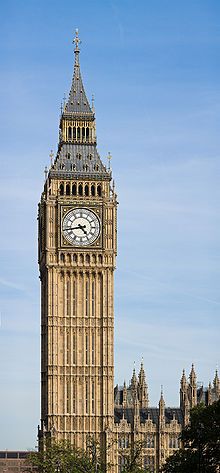This is your morning Open Thread. Pour your favorite beverage and review the past and comment on the future.
Find the past “On This Day in History” here.
Click on image to enlarge
June 3 is the 154th day of the year (155th in leap years) in the Gregorian calendar. There are 211 days remaining until the end of the year.

On this day in 1916, United States President Woodrow Wilson signs into law the National Defense Act, which expanded the size and scope of the National Guard, the network of states’ militias that had been developing steadily since colonial times, and guaranteed its status as the nation’s permanent reserve force.
The National Defense Act of 1916 provided for an expanded army during peace and wartime, fourfold expansion of the National Guard, the creation of an Officers’ and an Enlisted Reserve Corps, plus the creation of a Reserve Officers’ Training Corps in colleges and universities. The President was also given authority, in case of war or national emergency, to mobilize the National Guard for the duration of the emergency.
The act was passed amidst the “preparedness controversy”, a brief frenzy of great public concern over the state of preparation of the United States armed forces, and shortly after Pancho Villa’s cross-border raid on Columbus, New Mexico. Its chief proponent was James Hay of Virginia, the chairman of the Committee on Military Affairs.
Sponsored by Rep. Julius Kahn (R) of California and drafted by the House Chairman of the Committee on Military Affairs Rep. James Hay (D) of Virginia, it authorized an army of 175,000 men, a National Guard of 450,000 men. It created the modern Army Reserve Officer Training Corps (ROTC) and empowered the President to place obligatory orders with manufacturers capable of producing war materials.
Langley Field in Virginia was built as part of the act. Now U.S. Air Force Command HQ as Langley Air Force Base, this “aerodrome” was named after air pioneer Samuel Pierpont Langley (died 1904). The President also requested the National Academy of Sciences to establish the National Research Council to conduct research into the potential of mathematical, biological, and physical science applications for defense. It allocated over $17 million to the Army to build 375 new aeroplanes.
Perhaps most important, it established the right of the President to “Federalize” the National Guard in times of emergency, with individual States’ militias reverting to their control upon the end of the declared emergency. With the Defense Act, Congress was also concerned with ensuring the supply of nitrates (used to make munitions), and it authorized the construction of two nitrate-manufacturing plants and a dam for hydropower as a national defense measure. President Wilson chose Muscle Shoals, Alabama as the site of the dam. The dam was later named for him, and the two Nitrate plants built in Muscle Shoals were later rolled into the Tennessee Valley Authority in 1933.
Developments after September 11, 2001
Prior to the attacks against the United States on September 11, 2001, the National Guard’s general policy regarding mobilization was that Guardsmen would be required to serve no more than one year cumulative on active duty (with no more than six months overseas) for each five years of regular drill. Due to strains placed on active duty units following the attacks, the possible mobilization time was increased to 18 months (with no more than one year overseas). Additional strains placed on military units as a result of the invasion of Iraq further increased the amount of time a Guardsman could be mobilized to 24 months. Current Department of Defense policy is that no Guardsman will be involuntarily activated for more than 24 months (cumulative) in one six year enlistment period.
Traditionally, most National Guard personnel serve “One weekend a month, two weeks a year”, although personnel in highly operational or high demand units serve far more frequently. Typical examples are pilots, navigators and aircrewmen in active flying assignments, primarily in the Air National Guard and to a lesser extent in the Army National Guard. A significant number also serve in a full-time capacity in roles such as Active Guard and Reserve (AGR) or Air Reserve Technician or Army Reserve Technician (ART).
The “One weekend a month, two weeks a year” slogan has lost most of its relevance since the Iraq War, when nearly 28% of total US forces in Iraq and Afghanistan at the end of 2007 consisted of mobilized personnel of the National Guard and other Reserve components.

 Welcome to the Stars Hollow Health and Fitness News weekly diary. It will publish on Saturday afternoon and be open for discussion about health related issues including diet, exercise, health and health care issues, as well as, tips on what you can do when there is a medical emergency. Also an opportunity to share and exchange your favorite healthy recipes.
Welcome to the Stars Hollow Health and Fitness News weekly diary. It will publish on Saturday afternoon and be open for discussion about health related issues including diet, exercise, health and health care issues, as well as, tips on what you can do when there is a medical emergency. Also an opportunity to share and exchange your favorite healthy recipes. 

 On this day in 1980,
On this day in 1980,  The Cable News Network was launched at 5:00 p.m. EST on Sunday June 1, 1980. After an introduction by Ted Turner, the husband and wife team of David Walker and Lois Hart anchored the first newscast. Burt Reinhardt, the then executive vice president of CNN, hired most of CNN’s first 200 employees, including the network’s first news anchor, Bernard Shaw.
The Cable News Network was launched at 5:00 p.m. EST on Sunday June 1, 1980. After an introduction by Ted Turner, the husband and wife team of David Walker and Lois Hart anchored the first newscast. Burt Reinhardt, the then executive vice president of CNN, hired most of CNN’s first 200 employees, including the network’s first news anchor, Bernard Shaw. On this day in 1859,
On this day in 1859,  The main bell, officially known as the Great Bell, is the largest bell in the tower and part of the Great Clock of Westminster. The bell is better known by the nickname Big Ben.
The main bell, officially known as the Great Bell, is the largest bell in the tower and part of the Great Clock of Westminster. The bell is better known by the nickname Big Ben.
Recent Comments